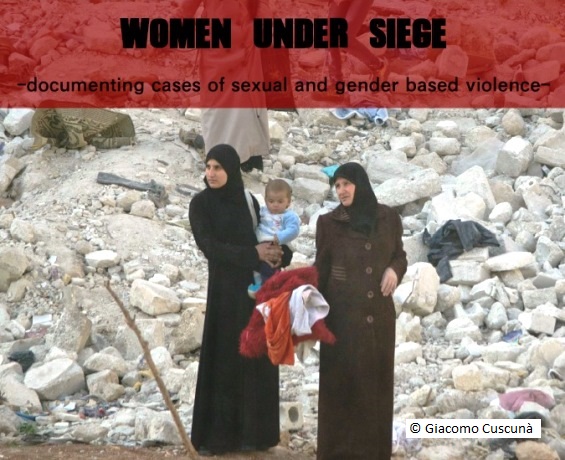Two years after the Syrian people joined the Arab Spring and were violently and brutally suppressed by the Assad regime, the crisis continues to deteriorate at a rapid pace. The warring parties are arming themselves with accelerated speed and unleashing increased levels of violence and violations of humanitarian and international law upon the civilian population, including particularly vulnerable groups such as women, young people and children.
Whether these dynamics can be changed depends on breaking the expectation of impunity and rewards for violence, by building the strength of Syrian human rights activists and political actors to demand justice and accountability, and building the capacity of the judiciary and legal profession to play their part as justice-providers. Accountability and redress for past and ongoing human rights violations must be put on the central stage if there is to be any hope for reaching lasting stability, reconciliation and peace in Syria.
To that end, No Peace Without Justice (NPWJ) is supporting the efforts and enhancing the capacity of Syrian civil society groups, human rights and democracy activists to document and report on crimes and abuses committed in Syria, including with a view to lay the foundation for future criminal investigations and prosecutions. As part of that work, NPWJ is holding a training course on “Documenting Violations Against Women”, on 9-12 December 2013, together with Assistance Cooperation Unit (ACU) and the Violations Documentation Centre in Syria (VDC), and with the support of the United Kingdom Foreign and Commonwealth Office. The training is taking place in the city of Gaziantep, Southern Turkey, where a number of International NGOs and International Organisations have been based since the start of the crisis in Syria.
Various UN bodies and representatives, as well as international and national NGOs, have documented specific forms of violence targeting women during the Syrian crisis. Despite the extreme difficulty to measure their extent due to the critical situation on the ground, it is likely that women are increasingly the targets of such abuses by government forces and other armed groups. Therefore, the purpose of this training is to acquaint participants with relevant techniques and mechanisms for the collection, evaluation and secure storing and dissemination of evidence related to sexual and gender based human rights violations. With increased capacity to manage information safely and to conduct analysis of that information, Syrian actors and the international community could play a more effective role in harnessing this information and rendering it useful for deterring future atrocities, encouraging desertion from units involved in their perpetration and laying the foundation for future accountability.
Participants in the training include representatives from ACU, VDC, lawyers, judges, police officers, women’s rights activists, social workers, moderate religious leaders and representatives of informal associations and NGOs working on investigation and documentation inside Syria. Participants come from Aleppo, Damascus, Raqaa, Homs, Hamah and Idlib. The training will be attended by the newly-appointed Minister of Justice of the National Coalition for Syrian Revolutionary and Opposition Forces, Mr Fayez Al Daher.
Documentation:
- Download the report on the training course “Documenting Violations Against Women”
- Visit the special page dedicated to NPWJ’s Syria Program on Justice and Accountability
NPWJ’s Syria Project on Justice and Accountability
This four-day training course is part of an NPWJ project aimed at reducing the expectation and rewards of impunity and at building a culture of accountability. The purpose is to equip citizens to demand accountability and justice for violations taking place on a daily basis for the past two and a half years and, at the same time, to equip the judiciary and legal profession to answer that demand.
The mainstay of the project is a series of advocacy and training events, which are being held in Gaziantep, Turkey, near the Syrian border, with Syrian judges, lawyers and civil society activists from Syria who can bring the skills and (perhaps more importantly) aspirations for justice back to their work and their constituents inside Syria.
The long-term goal of this project is to promote democracy and human rights protection through incorporating justice and accountability in decision-making on conflict resolution and stability, development, and reconstructing planning in Syria. The project’s strategic objective is to support Syrian civil society playing an active role on justice and accountability issues, including advocacy and documenting human rights violations, including receiving, gathering, collecting, collating, processing and securely storing information, documentation and materials and analyse it for the purpose of establishing what happened and reconstructing decision-making processes that resulted in violations international humanitarian and human rights law in Syria since March 2011.
Recent events:
- Training Course on “Forensic Investigations of Cases of Political violence”, Gaziantep, Turkey, 25-29 November 2013
- Side event on “Accountability for Syria”, The Hague, 12th ASP to the ICC, 23 November 2013
- Training course on “Chemical weapons awareness and documentation”, Gaziantep, Turkey, 7-12 October 2013
For further information, contact Hadi Al-Khatib on hadi@npwj.org or Nicola Giovannini on ngiovannini@npwj.org or +32-2-548-3915.




